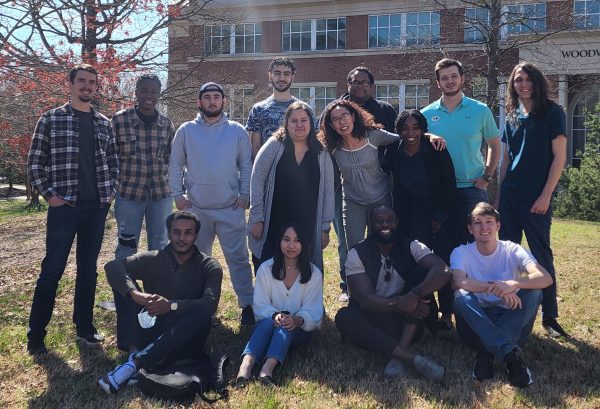Dr. Eugenia Lo Awarded Prestigious NIH R01 Grant

Dr. Eugenia Lo was awarded a prestigious NIH R01 grant entitled Plasmodium vivax Erythrocyte Invasion Mechanisms and Humoral Immune Response in Duffy Negative Africans. This award is funded for 5 years for a total of $3,224,551.
Individuals of African ancestry were thought to be protected from Plasmodium vivax because they lack Duffy antigen expression on the surface of their erythrocytes rendering P. vivax unable to invade their red blood cells. However, an increasing number of P. vivax cases reported across Africa and in Duffy-negative individuals challenges this conventional dogma, raising the possibility that some P. vivax lineages have evolved to use ligands other than Duffy Binding Protein for erythrocyte invasion. The intrinsic invasion mechanism and immune response of Duffy-negative individuals to P. vivax are largely unknown. In this application, we will investigate the expression and function of erythrocyte binding genes in Duffy-negative P. vivax and the antibody response of Duffy-negative individuals to P. vivax antigens. There are three specific aims: 1) to identify genes with differential expression between Duffy-positive and Duffy-negative P. vivax by RNA-seq; 2) to determine in vitro binding and invasion activities of P. vivax candidate ligand proteins to Duffy-negative red blood cells; and 3) to examine in vivo antibody levels to targeted P. vivax antigens associated with erythrocyte invasion in Duffy- negative patients. The proposed research will be conducted in Ethiopia, where malaria is a major public health problem, and about 30% of, the 1.2 million confirmed malaria cases,were P. vivax. As our study sites have a large, number of P. vivax cases and a, significant proportion of Duffy-negative individuals, we have a unique opportunity to study the invasion mechanisms of P. vivax in Africa. We have a collaborative team and logistics in place for sample collection and processing. Our established lab culture facility closes to the health centers and successful P. vivax transcriptome data obtained from cultured schizonts have demonstrated the feasibility of this research. Comparison of P. vivax transcriptomes between Duffy-negative and Duffy-positive individuals from both in vitro and in vivo samples will provide the first description of genetic and functional attributes of P. vivax that permit infection of Duffy-negative erythrocytes. This research will significantly enhance the understanding of invasion mechanism of P. vivax in Duffy- negative individuals and lay a foundation for molecular and biochemical characterizations of P. vivax ligand-receptor interactions. Knowledge of P. vivax invasion mechanisms and host immune responses will have important implications for P. vivax vaccine development and vivax malaria risk assessment both within and outside Africa.